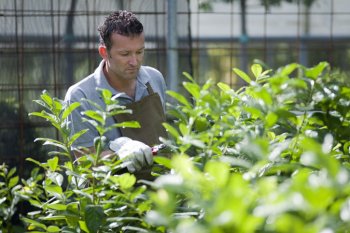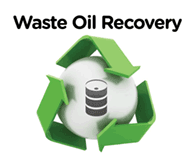
Primary Industries Face a new Set of Costs
From next year all primary industries from, Dairy NZ down to hazel nut and passion fruit growers, will be required to pay a portion of the cost relating to biosecurity activities where they are deemed to be a beneficiary of the elimination of a pest or disease after a biosecurity breach.
And the bills will begin arriving in the second half of 2016.
This is a move by the government to shift the cost of cleaning up after biosecurity breaches from being borne solely by the Ministry for Primary Industries to its being shared by the MPI and primary producer groups that are deemed to be beneficiaries of the clean up. This scheme is known as ‘Government Industry Agreement’ or GIA. The process is fully backed by legislation already in place.
GIA consultation began several years ago and our chairman David Blewden attended several forums in Wellington before concluding that the flower sector was too small, did not have sufficient funds and would not be able to rally support for any involvement. Many of us who knew of the scheme at that stage concluded “That is that”, and put it out of mind.
So what has changed? MPI has reached the point where it is working through details for the process of ‘cost recovery’ and is aiming to have the framework in place by July 2016. Cost recovery will occur where it is equitable and efficient for MPI to recover costs related to the two functions of biosecurity – readiness and response activities. It is anticipated that recovery for readiness will begin in 2016 and recovery for response activities will begin in 2017.
The only real choice primary producers have is to consider whether they wish to sign the GIA Deed and then be able to influence biosecurity decision-making, or remain outside the process as non signatories. Payment for cost recovery is very different in the two situations, for non signatory groups,MPI are suggesting that they will use the powers of the ‘Biosecurity Levies Act’ to recover the costs by imposing a levy on individual producers’ products at the point of sale. For non-signatories, then, unless they can sell absolutely everything at their gate or a farmers market, MPI will be able to recover the costs of any biosecurity clean-up of which they are deemed to be beneficiaries, without any input from them. Signatories of the GIA Deed, however, will have a say in determining the cost recovery process.
However it is not all that simple, in fact the whole concept and process is extremely complicated. The first thing to explore and come to grips with is the process of deciding who is a beneficiary and who is not a beneficiary of any biosecurity clean-up, and if you are a beneficiary, how much of a beneficiary are you? If you are ‘inside the tent’, so to speak, you will be involved in this process of deciding who pays what percentage. If you are outside the tent you will simply be told what percentage you have to pay.
So to begin, in order to decide whether you want to be in the tent or out of it, it is necessary to draw up a list of the pests that are a threat to the production of your primary products. The flower sector has an enormous challenge even at this early stage with such a huge range of plant products, especially compared with, say, Kiwifruit with a single product and financial resources to develop a pest list. Fortunately there is another sector with the same problem, namely The Nursery & Garden Industry of NZ [NGINZ] and we do have co- operation from them since they will provide us with their pest list as a starting point. Also an organisation, like the NZFGA, that represents a range of crops does not have to sign for all crops; it can sign for some crops and not others. Maybe rose growers should be talking amongst themselves and deciding what they want to do, as should lily growers and bulb growers and alstromeria growers, etc.
The potential questions about this scheme are almost endless. My aim here is simply to describe the reality of what is happening. Our association will attempt to set up systems by which GIA discussions can be held with members of the flower growing industry. Some of you may not wish to take discussions further, and a no response is being interpreted by MPI as, not willing to be involved but the MPI seems to be taking a more conciliatory view of industry sectors that cannot engage versus those that will not engage. The flower sector as a whole may be unable to sign the GIA Deed but some flower groups may wish to do so and the NZFGA has a responsibility to help those groups to understand the scheme and reach a conclusion about what action they may wish to take.
Chris Smellie - Executive Officer for NZ Flower Growers Association.
NB. If you wish to discuss GIA and its implications further with a committee member please provide –
Name –
Region –
Product Type –
And email to [email protected].



 Classifieds
Classifieds



